
Want to spread the message of Mattering but can’t book Angela right now?
Look into our four different FREE Choose2Matter course modules we have for turning your next meeting or class into a Choose2Matter day! We have four different length courses including:
1 Hour: Learning the Importance of Mattering in Your Everyday Life
2 Hour: Helping Spread the Message of #YouMatter to Those Around You
3 Hour: Uncovering Your Genius
Full Day: Pathway to Becoming a Mattering Ambassador
Choose2Matter is a universal movement that challenges students to work collaboratively to develop innovative solutions to social problems. Students tackle authentic real world problems and learn the skills needed to compete in today’s world.
Our team regularly conducts Choose2Matter LIVE events in schools. These events build skills in leadership, problem-solving, digital literacy, and much more. Look below for each teach yourself course outline and curriculum!
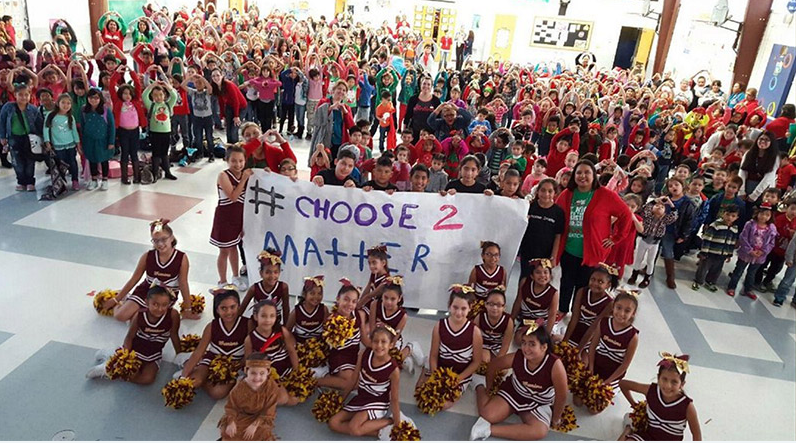
1 Hour Session: Learning the Importance of Mattering in Your Everyday Life
Course Objectives
- Participants will engage in authentic, passion-based learning and become self-aware, empathetic, empowered, collaborative, innovative, passionate agents of social change.
- Understand the nine parts of the You Matter Manifesto.
- Understand, and begin to overcome, the human tendency to see limits instead of possibility.
- Learn how and why we can live our best lives when we embrace vulnerability.
- See that we must be brave with our lives to encourage others to be brave with theirs
Agenda
- Watch You Matter Video (20 minutes)
- You Matter Reflection and Activity (5-10 minutes)
- Read the You Matter Manifesto (5 minutes)
- You Matter Manifesto Reflection Activity (10 minutes)
- Read our Language of Mattering Framework (10 minutes)
- Conclusion Video (5 minutes)
You Matter Video:
“Two Words. These two words can change a mood, they can change a mind, they can change a heart. I’m going to make the case today that these two words can change lives and can change the world, if we understand them and we leverage them in the right way.”
The remainder of this course is directed at helping you understand, and leverage, these two words in the right way.
Reflection:
Divide the room into groups of three and four and have them in a 5-10 minute discussion about the two words “you matter” and their takeaways from the video.
- What are your three main takeaways from this talk?
- Did Angela make the case that these two words can change lives and change the world, if we understand them and we leverage them in the right way?
- Are you excited to learn more about how to understand and leverage these two words?
You Matter Manifesto:
The You Matter Manifesto is a call to action.
Before we can convince anyone else they matter, we must first convince ourselves. Acknowledge and use the gifts you have been blessed with. Empower yourself and realize the importance of contributing to the world by owning your genius. Mattering is a process, not an event.
Consider this Manifesto an acknowledgement of your significance and that YOU MATTER.
1. You Are Enough
Do you know what it takes to make a difference in this world? You don’t have to be rich or famous. No special knowledge or skills are needed. Whether you are young or old or in-between, you matter.
2. You Have Influence
To acknowledge you can change the world can be overwhelming. Yet all of us have the ability to change the world by contributing our genius to solve problems.
3. You Are a Genius
You don’t have to win a Nobel Prize or earn a Master’s degree to be a genius. You just have to use your insight and initiative to find original solutions that matter.
4. You Have a Contribution to Make
“We cannot all do great things, but we can do small things with great love.” —Mother Teresa of Calcutta
Your mere presence can bring a smile to someone’s face. Your poetry can lift someone out of a slump. Your passion can lead you to create something magnificent. The size of the contribution is not what matters most. What counts is how much of your heart you put into it.
5. You Have a Gift to Give That Others Need
“Happiness never decreases by being shared.” —Siddhartha Gautama (Buddha)
Happiness and love are the two greatest gifts you can give to the world. Too often, we indulge our own gratifications and forget there are people in this world who we can make feel loved, or appreciated, or even noticed. These are gifts anyone can give.
6. You Are the Change
It is in small encounters with others that we recognize that we matter. A shared smile, an unexpected kindness; our actions and words touch the lives of those around us. It is in these small moments that we find opportunities to make the choice to matter. In doing so, we make the world a better place.
7. Your Actions Define Your Impact
“How wonderful it is that nobody need wait a single moment before beginning to improve the world.” —Anne Frank
Action is the world’s greatest currency. There is no better day than today to start to make a difference in the world. You don’t need to wait till you have more time; you don’t have to wait till you make more money. Start with these two words – “You Matter” – and you will see how much it counts today.
8. You Matter
To matter means to be of consequence to others. It means you are significant, relevant, and of crucial value. The world may not always affirm this. Your friends and family may not adequately communicate the importance of your presence in their lives. But the world would be a very different place—a lesser place—without you. Let’s make our time together matter! This is only the beginning!
Reflection Activity:
Go back into the groups of three and four to answer these questions and have people write their own You Matter Manifesto to their younger self!
- Group Discussion: If you could write a message to your younger self at middle school and high school graduations, on the first day of your career, and at the one point in your life in which you most doubted that you are enough, what would you say?
- Writing Activity: Gather your thoughts, and then write your own You Matter Manifesto to your younger self at these various points in your life.
Language of Mattering Handout:
Hand out a sheet to everyone of these starting points to incorporate language of mattering in your everyday life! Have everyone read it and either choose 3 of these or create their own to incorporate in their conversations with those around them to increase the message of mattering to the world.
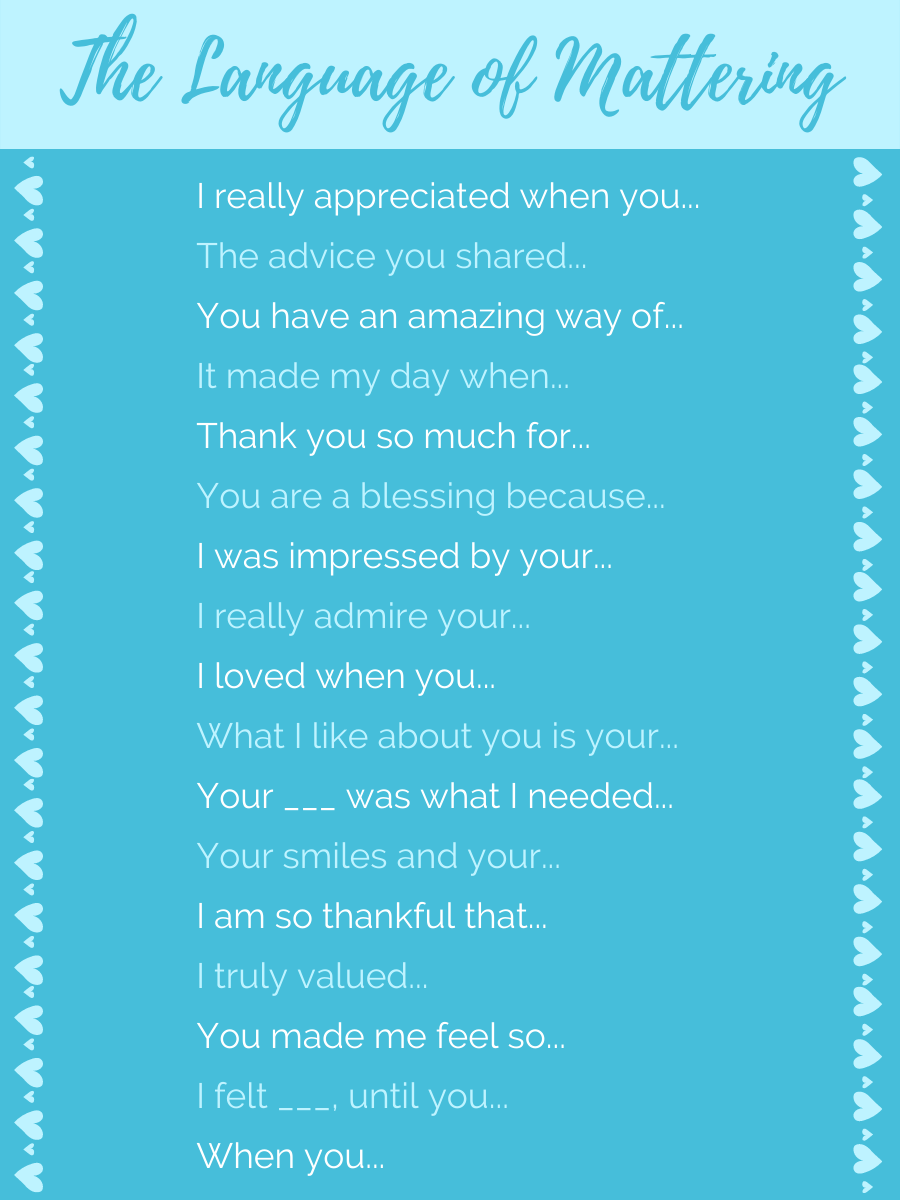
Conclusion Video
Share this last video that I love to watch over and over again of Educators reacting to the message of mattering. Now your viewers have an understanding of how to increase their understanding of mattering in their everyday life that will lead to positive impacts!
Remind them that they can subscribe to my newsletter for bi-weekly updates about new blogs/events/messages relating to mattering and discovering your genius. ❤️

2 Hour Session: Helping Spread the Message of #YouMatter to Those Around You
Course Objectives:
- Participants will engage in authentic, passion-based learning and become self-aware, empathetic, empowered, collaborative, innovative, passionate agents of social change.
- Understand the nine parts of the You Matter Manifesto.
- Understand, and begin to overcome, the human tendency to see limits instead of possibility.
- Learn how and why we can live our best lives when we embrace vulnerability.
- Learn the power of our words and why the language of mattering is important and how to incorporate it in our everyday lives
Agenda:
- Watch “You Matter” (20 minutes)
- You Matter Reflection and Activity (10 minutes)
- Read the You Matter Manifesto (5 minutes)
- You Matter Manifesto Reflection Activity (10 minutes)
- Read “Why Do We See Limits Instead of Possibility” (5 minutes)
- Reflection Activity (10 minutes)
- Break (10 minutes)
- Read “People Know They Matter When” (10 minutes)
- Reflection Activity (10 minutes)
- Read “Words Matter” (10 minutes)
- Reflection Activity (15 minutes)
- Conclusion Video (5 minutes)
You Matter Video
On June 26, 2011, I stepped onto a red rug on the stage at TEDxDesMoines and said:
“Two Words. These two words can change a mood, they can change a mind, they can change a heart. I’m going to make the case today that these two words can change lives and can change the world, if we understand them and we leverage them in the right way.”
The remainder of this course is directed at helping you understand, and leverage, these two words in the right way.
Reflection:
Divide the room into groups of three and four and have them in a 5-10 minute discussion about the two words “you matter” and their takeaways from the video.
- What are your three main takeaways from this talk?
- Did Angela make the case that these two words can change lives and change the world, if we understand them and we leverage them in the right way?
- Are you excited to learn more about how to understand and leverage these two words?
You Matter Manifesto:
The You Matter Manifesto is a call to action.
Before we can convince anyone else they matter, we must first convince ourselves. Acknowledge and use the gifts you have been blessed with. Empower yourself and realize the importance of contributing to the world by owning your genius. Mattering is a process, not an event.
Consider this Manifesto an acknowledgement of your significance and that YOU MATTER.
1. You Are Enough
Do you know what it takes to make a difference in this world? You don’t have to be rich or famous. No special knowledge or skills are needed. Whether you are young or old or in-between, you matter.
2. You Have Influence
To acknowledge you can change the world can be overwhelming. Yet all of us have the ability to change the world by contributing our genius to solve problems.
3. You Are a Genius
You don’t have to win a Nobel Prize or earn a Master’s degree to be a genius. You just have to use your insight and initiative to find original solutions that matter.
4. You Have a Contribution to Make
“We cannot all do great things, but we can do small things with great love.” —Mother Teresa of Calcutta
Your mere presence can bring a smile to someone’s face. Your poetry can lift someone out of a slump. Your passion can lead you to create something magnificent. The size of the contribution is not what matters most. What counts is how much of your heart you put into it.
5. You Have a Gift to Give That Others Need
“Happiness never decreases by being shared.” —Siddhartha Gautama (Buddha)
Happiness and love are the two greatest gifts you can give to the world. Too often, we indulge our own gratifications and forget there are people in this world who we can make feel loved, or appreciated, or even noticed. These are gifts anyone can give.
6. You Are the Change
It is in small encounters with others that we recognize that we matter. A shared smile, an unexpected kindness; our actions and words touch the lives of those around us. It is in these small moments that we find opportunities to make the choice to matter. In doing so, we make the world a better place.
7. Your Actions Define Your Impact
“How wonderful it is that nobody need wait a single moment before beginning to improve the world.” —Anne Frank
Action is the world’s greatest currency. There is no better day than today to start to make a difference in the world. You don’t need to wait till you have more time; you don’t have to wait till you make more money. Start with these two words – “You Matter” – and you will see how much it counts today.
8. You Matter
To matter means to be of consequence to others. It means you are significant, relevant, and of crucial value. The world may not always affirm this. Your friends and family may not adequately communicate the importance of your presence in their lives. But the world would be a very different place—a lesser place—without you. Let’s make our time together matter! This is only the beginning!
Reflection Activity:
Go back into the groups of three and four to answer these questions and have people write their own You Matter Manifesto to their younger self!
- Group Discussion: If you could write a message to your younger self at middle school and high school graduations, on the first day of your career, and at the one point in your life in which you most doubted that you are enough, what would you say?
- Writing Activity: Gather your thoughts, and then write your own You Matter Manifesto to your younger self at these various points in your life.
Why Do We See Limits Instead of Possibility?
“The problems of the world cannot possibly be solved by skeptics or cynics, whose horizons are limited
by the obvious realities. We need men who can dream of things that never were and ask why not.”
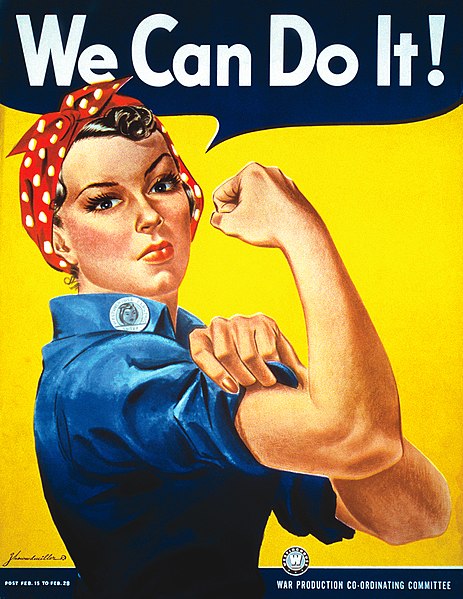
Every second, somewhere in the world, a genius is born.
They come to us with a dream, a destiny, and a desire to make an impact. Their words, their ideas, have the power to move and motivate strangers, the power to rattle the skies and shake the moon.
When we visit schools to discuss Choose2Matter, we begin with this statement:
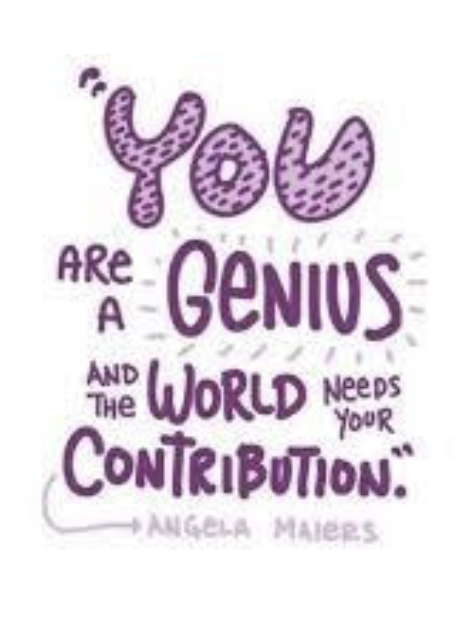
When we’re speaking to five year olds, 100% believe us. When it’s older teens, only 2% believe us. When do we give up ownership of our gifts? Hide our uniqueness? Deny our genius? Many people urge us to “stop telling kids they are geniuses — you’re setting unrealistic expectations.”
Unrealistic for whom?
Somewhere between preschool and grad school, we learn to withhold our genius, to hold back, to not dream audaciously, to not dare greatly. We’re told we’re not enough, that we don’t matter. Somehow, we believe this. We need to change these beliefs right here, right now.
First, we’ll let you in on a secret: many, if not most, of the highly accomplished people you know, the ones you believe have more self-confidence and self-assurance than anyone you’ve ever met, struggle at times to believe in themselves.
Consider this poem:
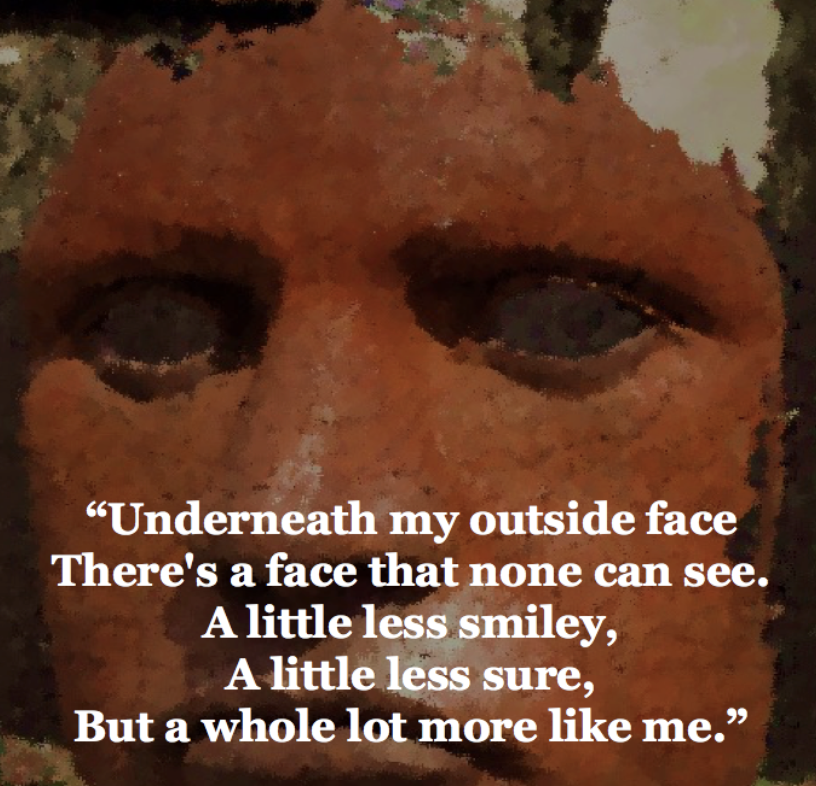
“Marlowe Theatre Face Sculpture” by Oast House Archive is licensed under CC BY-SA 2.0
This was written by Shel Silverstein, best-selling author of children’s books, cartoons, a whole catalogue of chart-topping songs, and many plays. Yet though he was a much-accomplished creative artist, he still wrote this poem about how he felt “a little less sure” on the inside.
So how do we morph from audacious five year olds to being “a little less smiley, a little less sure”?
In “What Would You Do If You Knew You Were Limitless,” Rebel Brown writes:
Studies show that before we’re 17 we’re told, “we can’t” 150,000 times. We’re told, “we can” only 5,000 times. That’s 30:1 programming in favor of the negative. This is why we limit our lives, our beliefs about ourselves and our goals. We weren’t born to have the fear and limitations we carry with us. We were born to believe in our potential.”
Surely, the language that adults in our lives used strongly influenced our self-views. But maybe there’s something deeper at work. Marianne Williamson once wrote, “Our deepest fear is not that we are inadequate. Our deepest fear is that we are powerful beyond measure.”
As we previously mentioned, Nelson Mandela said, “There is no passion to be found playing small.” To this, we add: Your students will not find their passion as a result of you playing small.
When we dwell in possibility, we help others do the same. We stretch their thinking and build their capacity to dream, hope, and plan for a brighter future. Conversely, when we focus on perceived limits, we build a box around our own potential and that of our students.
Reflection Activity
Watch this video of Jodi DiPiazza, an eleven-year-old girl with autism, singing with Katy Perry.
People Know They Matter When
1. You See Them.
In the movie “Avatar,” the Na’vi greeted one another with the phrase, “I see you.” It’s meaning is closer to “I understand you” or “I comprehend you.” It means you open your heart and mind to the other person, as though you were seeing them for the very first time. It is an acknowledgment that there is something worth noticing and appreciating in everyone we meet.
One way to let people know you see them is to begin or end sentences with the word “you.”
- I hear you.
- I understand you.
- I appreciate you.
- It was great to spend time with you.
- I couldn’t have done it without you.
- You made my day.
You may say these already to your loved ones or good friends. But how often do you say them to people to whom you aren’t as close? Do you say these words to students at school, colleagues at work, a crossing guard, a receptionist or a stranger you pass on the street?
2. You Listen Earnestly!
“More and more I’ve come to understand that listening is one of the most important things we can do for one another….It can often be our greatest gift.” —Fred Rogers
Listening means more than quietly nodding your head while waiting your turn to speak again. It means opening your ears and heart and making the other person the sole focus of your attention. Be empathetic and try not just to hear what they say, but understand it. Put yourself in their shoes and see where they are coming from. Often, this is all someone needs from you.
3. You Ask Meaningful Questions
Questions are a window into our minds and intentions. We show people how much they matter by the questions we ask them. Do you ask meaningful questions that show a sincere interest in others?
- What’s on your mind these days?
- What was the best moment of your day?
- How did you make a difference today?
- How can I help you achieve your goals?
4. You Believe They Can
“All you really need is one person to show you the epiphany of your own power and you’re off. If you can hand people the key to their own power, the human spirit is so receptive…if you open doors for people at a crucial moment, you are educating them in the best sense. You are teaching them to open doors for themselves.” —Aimee Mullins, “The Opportunity of Adversity,” TedMed 2009
When we believe in others and encourage them to believe in themselves, we hand them the key to their own power. We help them stretch their thinking, envision success, and open the door to their true potential. Words are contagious. Hopeful words infect people with energy and enthusiasm; cynical words unleash energy-sucking negativity, doubt and fear.
5. You Dwell in Possibility
I dwell in Possibility–
A fairer House than Prose–
More numerous of Windows–
Superior–for Doors–
– Emily Dickinson
When we dwell in possibility, we help others to do the same. If people cannot envision the possibility, they cannot achieve the outcome. Imagination is our mind’s eye. It enables us to make the mental leap from present facts to future possibilities. Our capacity to dream, hope, and plan for a brighter future depends on the extent to which we use our imagination to dwell in possibility.
6. You Celebrate Their Achievements
Do you know anyone who talks relentlessly about his or her own accomplishments? Of course you do; these people are difficult to avoid. Humble people are far more interesting. When you celebrate the achievements of others, the strides they’re taking, the goals they’ve met, it reinforces their will to keep moving in a positive direction. Part of helping people grow is being able to recognize and honor who they are right now. That’s an accomplishment worth talking about.
7. You Do Small Things With Great Love
Give me your hand when I’ve lost the way, Give me a shoulder to cry on
Whether the day is bright or gray, Give me your heart to rely on
Send me the warmth of a secret smile, To show me you haven’t forgot
For always and ever, now and forever, Little things mean a lot
“Little Things Mean A Lot” by Edith Lindeman and Carl Stutz, 1953
A smile. A “hello” that lingers. A note of praise, a pat on the back that says, “Job well done.”
A phone call that says, “I’m thinking of you.” Little things mean a lot. Can you imagine how small actions you take today might make a difference in someone’s life tomorrow? Can you imagine the ripples those actions might make?
8. You Show Up
In a post on NPR titled, “Always Go to the Funeral,” Deirdre Sullivan explains that the title expresses a broader philosophy that,
“I have to do the right thing when I really, really don’t feel like it…. I’m talking about those things that represent only inconvenience to me, but the world to the other guy…. In my humdrum life, the daily battle hasn’t been good versus evil. It’s hardly so epic. Most days, my real battle is doing good versus doing nothing.”
Most of us fight the same battle. Let doing good triumph over doing nothing. Show up.
9. You Choose to Matter
Mattering is a choice.
Make the choice everyday to offer, thank, encourage, inspire, and let others know you notice and believe in them. It could be, and often will be, the most powerful thing you do all day.
This simple, clear message of “YOU MATTER” has the power to change lives and change the world, if we understand it and leverage it in the right way.
Reflection Questions and Activity
For the next three days, carefully watch people in your life—in school activities, on the street, in stores, in your own home. Take notes on what you notice. On each of these three days, intentionally use three of the methods in this section for showing people they matter.
Go into groups of three or four again and have everyone answer these questions. If there’s time when all groups are finished, having those willing to share their answers!
- What did you notice that you might not have noticed before you read this section?
- Which of the ways to let people know they matter did you use most often?
- What other ways do we let people know they matter?
Words Matter
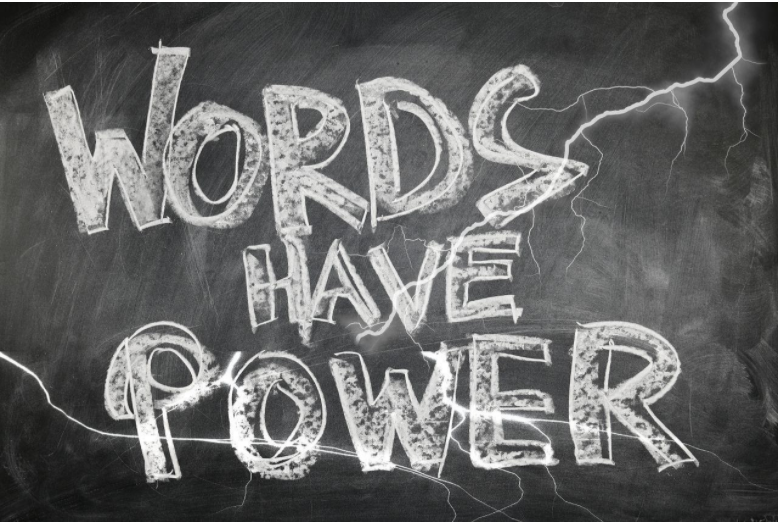
By Gerd Altmann, [Public domain], via Pixabay
The language and tone we use when speaking with students has a profound effect on learning, classroom management, students’ self-control, and their sense of belonging. The words, phrases, tone, and pace all impact how students respond to you.
However, thoughtful use of language is an often overlooked component of the teacher’s repertoire. Effective teacher talk is a skill that develops over time. The following steps can help build awareness toward harnessing the power of our words.
- In The Magic of Believing, Claude Bristol wrote, “It’s the repetition of the same chant, the same incantations, the same affirmations that leads to belief, and once that belief becomes a deep conviction, things begin to happen.” These words became famous when adopted by champion boxer Muhammad Ali. Think very carefully about the “incantations” you repeat to students, and whether they are fairly deemed “affirmations” that help students develop deep convictions that cause things to happen. If not, think about how you can change them.
- Think about the exact words you will use while lesson planning. Forethought about the words we use can impact the flow and dynamics of instruction.
- Before you begin speaking in class, take a few seconds to think about your “keywords.”
- Use the “Language of Mattering” chart below by copying and pasting it on your classroom desk. Then begin sentences with words such as these with everyone you meet!
| What I like about you is… | I really appreciated when you… | I loved when you… |
| I’ve noticed that… | It was a blessing to have met you | I am so thankful that |
| The advice you shared…. | I was impressed by your… | You made me feel so… |
| You have an amazing way of | You were exactly what I needed | You helped me so much… |
| I remember you…. | I truly valued…. | Thank you so much for… |
| It made my day when.. | I really admire your…. | You are a blessing because… |
- Record the words you speak in the classroom for short periods of time. Then listen and re-listen to the words you use, and the tone and context of that dialogue.
- Involve your students! Challenge them to stop using self-limiting words, and, if you dare, to call you out when you use limiting language, whether about them or yourself. Words you use to describe yourself may impact your students as much as the ones you use to describe them.
- Invite colleagues to join you in this process, and learn with and from them.
Activity and Reflection:
Get everyone into teams of 3 or 4 again to read through activity materials and go through reflection questions and answers together.
Activity
- “Rocks in Your Backpack” is an excellent lesson for learning about the weight of harsh words.
- Read this post about how a third grade teacher employs the powerful incantation of “Push through” to help her students develop a healthy self-image and belief in themselves.
- Sometimes it’s the words you don’t say that make your words even more powerful. Read Angela Watson’s “8 Ways Teachers Can Speak Less and Get Kids Talking More.“
Reflection
- What are some words that you plan to use more often this year?
- In our live events, we ban the word “just”—we call out every example of someone saying, “I’m just a teacher/student/one person.” What are other limiting words or phrases you will avoid?
- What other techniques will you use to enhance your “teacher talk”?
- Are you brave enough to invite your students to call you out when you use limiting language?
Conclusion Video
Share this last video that I love to watch over and over again of Educators reacting to the message of mattering. Now your viewers have an understanding of how to increase their understanding of mattering in their everyday life that will lead to positive impacts!
Remind them that they can subscribe to my newsletter for bi-weekly updates about new blogs/events/messages relating to to mattering and discovering your genius. ❤️
